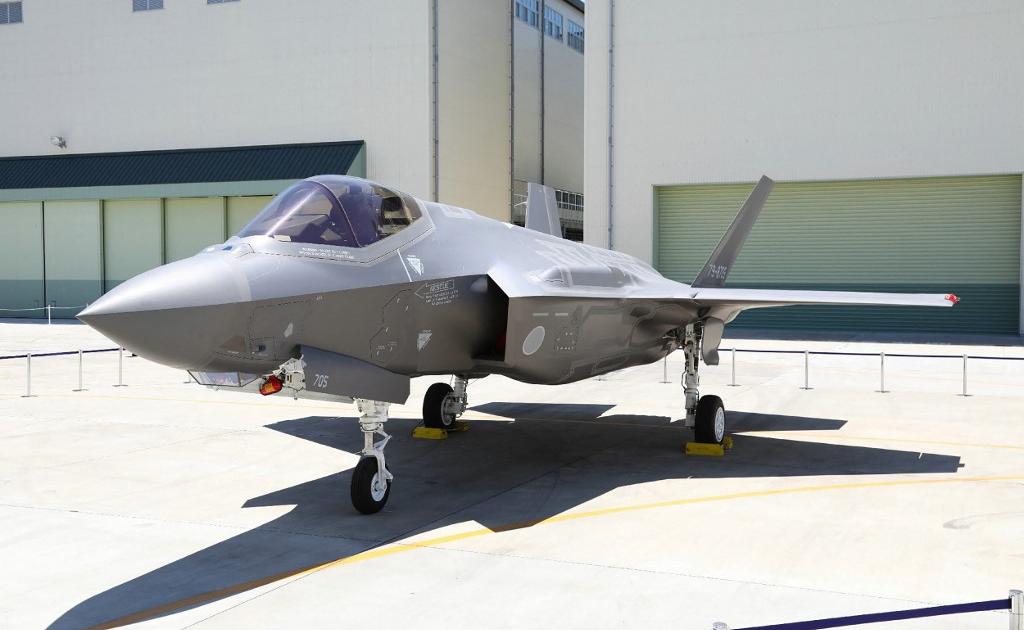
Japan, the United Kingdom and Italy will develop a new generation of combat aircraft
Japan’s Mitsubishi Heavy Industries, Britain’s BAE Systems and Italy’s Leonardo should be at the heart of the project, according to Japanese economic newspaper Nikkei.
Japan will cooperate with the United Kingdom and Italy to develop the next generation of combat aircraft by 2035, the three countries announced Friday, December 9, as the Japanese archipelago seeks to bolster its defense strategy in a tense geopolitical context. Tokyo, London and Rome will be launched “An ambitious effort to develop a next-generation fighter jet” As part of a program called GCAP (Global Air Combat Program), these governments said.
This collaboration, which aims to build on research already initiated by the three partners into advanced air combat technologies such as unmanned aircraft, marks Japan’s first engagement with European partners to design a combat aircraft. Cost details for the project have yet to be finalized, according to a Japanese Defense Ministry official who said production should begin around 2030 or 2031 so that a prototype can be deployed by 2035. “When you look at other countries, the United States has the F35 and Europe has the Eurofighter. We will of course aim to create combat aircraft that are beyond the capabilities of these models.added this person in charge.
Read alsoIndo-Pacific: Japan is protected and hindered by its American alliance
Japan’s Mitsubishi Heavy Industries, Britain’s BAE Systems and Italy’s Leonardo should be at the heart of the project, according to information from Japan’s Economic Daily. Nikki. “We are determined to defend a free, open, and rules-based international order, which is more important than ever at a time when these principles are being challenged and when threats and attacks are increasing.”The three countries said in a statement. Given the critical importance of defending our democracy, economy, and security and safeguarding regional stability, we need strong defense and security partnerships, underpinned and strengthened by a credible deterrent force.they added.
Japan, whose defense strategy relies heavily on its American ally, is seeking to significantly increase its capabilities in this field to deal with the growing threats it feels on its borders, from North Korea to China via Russia after the invasion of Ukraine. Tokyo announced this week that it intends to increase its military spending by 56% over the period 2023-2027, compared to the previous five years, and raise its defense budget to 2% of national GDP by 2027, from a maximum of 1% so far. . Such a goal is controversial in this country endowed with a pacifist constitution since 1947, which significantly limits the means and tasks of the “self-defense forces” (the name of its army).
Read alsoJapan pledges to enhance its military capability
Japan, the United Kingdom and Italy say they designed the GCAP as a basis for cooperation with other countries, and they insist in their press release. “Future interoperability with the United States, NATO, and our partners across Europe, the Indo-Pacific region, and around the world.”. “The United States supports Japan’s security and defense cooperation with allies and like-minded partners (…) to develop its next combat aircraft”This came in a joint statement issued by the US Department of Defense and the Japanese Ministry of Defense.
In particular, it discusses countries together “autonomous systems” Which can be complementary to the Japanese fighter aircraft project and approved “Start concrete collaborations within the next year”Allow Common Responses to Future Threats In the Asia Pacific region, this press release adds.
See also – Armament: “The demand will undoubtedly increase in the coming years,” according to a researcher from Sipri.
The future combat aircraft is seen as a successor to the Japanese Mitsubishi F-2, which was designed with the American company Lockheed Martin and entered service in 2000. Its development should in particular integrate developments in the Tempest combat aircraft project, which is being implemented by the United Kingdom, and which was announced for its prototype In the next five years.

“Unapologetic pop culture trailblazer. Freelance troublemaker. Food guru. Alcohol fanatic. Gamer. Explorer. Thinker.”
